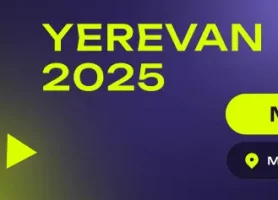Gambling News Digest: PointsBet to Leave US Market, US Gambling Revenue Up and more
BC PointsBet will leave the US due to a failed attempt to conquer the US market
According to Gambling Insider, Australian bookmaker PointsBet has hired investment bank Moelis & Capital to sell its North American operations. The reason for this decision was that the bookmaker failed to increase its share in the US betting market. According to the source, PointsBet is now considered the seventh largest betting operator in the country, significantly behind such companies as DraftKings, FanDuel and BetMGM. Note that now the PointsBet brand is represented in 14 US states.
In the second half of 2022, the company reported revenue of $120 million, up 28% from the same period last year. In addition, according to the bookmaker, the total amount of sports betting in the first half of the fiscal year 2023 amounted to $1.1 billion. Experts point out that the situation in the US does not look deplorable for PointsBet, but the company considered otherwise.
Now the question is about the cost of the acquisition and directly the potential buyer of the American PointsBet business. There is no information yet on both counts.
Recall that among the possible buyers of this asset are the British gambling holding Entain, as well as the Australian bookmakers Betr and Tabcorp.
Empire State fell short of $1.8 billion for the second time in 2023.

On Monday, the New York State Gaming Commission reported adjusted gross sports betting revenue of $163.6 million, an all-time high for Empire State.
This result exceeds the previous record of $149.4 million set in January. This is second in the country in terms of total monthly income after $209 million which operators in Ohio were able to earn. Record mobile betting revenue of $162.8 million contributed to the state’s national record monthly tax revenue. It is noted that Empire State brought in $ 83.1 million.
Tax revenue in March boosted the total from sports betting to more than $900 million.
Peru will not allow anonymity in online casinos and online sports betting

Peru will not allow anonymity in online casinos and online sports betting. The Commission for Economics, Banking, Finance and Financial Intelligence unanimously adopted an opinion that changes a number of articles of Law No. 31557 which regulates gambling and bookmakers.
According to the content of the document, establishments that operate as online sports betting halls are subject to automatic approval and have the right to operate exclusively in this way or as an additional activity to the sale of other goods or services.
According to the law, governing online gaming in Peru, online gambling or online sports betting are games that are played on technological platforms where bets are placed on the results or circumstances of sporting events.
“The adopted alternative text states that anonymity cannot be allowed in bets, as this is contrary to the goals of the law and the prevention and fight against gambling and money laundering,” the Peruvian Congress portal states.
The opinion, which is part of Congresswoman Lady Camones Soriano’s draft, also establishes that the bonus that applies to online gaming or sports betting “should remain in the tax base of such games and bets” in order to promote national policies to combat gambling addiction.
US gambling revenue up 14.5% in February 2023

In February 2023, the combined income from slots, table games and bookmakers at land-based casinos, as well as online bets placed in the United States was $5.12 billion. This follows from the report published last week by the American Gaming Association (AGA), which contains data on 33 jurisdictions in which commercial gambling is carried out.
Compared to February 2022, gaming revenue increased by 14.5%.
February 2023 was the 24th consecutive month of positive year-on-year revenue growth. Combined casino slots and table games revenue was $3.97 billion, up 8% year-over-year. Of that amount, $2.86 billion was related to slot machines, up 8.4% from the previous year. Table games revenue increased 9.1% to $812.2 million.
The sports betting segment across 29 US commercial markets generated $678.7 million, up 71.5% from a year earlier.
Brazil’s Unregulated Online Gambling Market Hits $29.7 Billion Annually

The turnover of the Brazilian online gambling market annually reaches $29.7 billion, according to Yogonet, citing O Globo. At the same time, companies present in the jurisdiction operate in an unregulated mode without paying taxes.
There are thousands of online betting platforms in the gambling sector of the largest state in Latin America, but the vast majority of them are based abroad due to the lack of a legal framework for gambling regulation. However, the government of the new President of Brazil, Luiz Inacio Lula da Silva, intends to take control of the gambling market.
The tax rate for gambling operators is currently being discussed, which could be 15% of gross gaming revenue (GGR*).
In addition, gambling companies will be required to pay about $6 million every five years to obtain a license and have an official representative office in the country.
Key players in the Brazilian gambling market assess the plans of the authorities to regulate the sector as positive. At the same time, gambling companies fear that the government will impose too high tax rate, which will make legal work in the country unprofitable for operators and lead to further growth of the gray market.
Unregulated companies are expected to lose the opportunity to conclude sponsorship deals with sports clubs. It is worth noting that today the presence of bookmakers in Brazilian football is quite tangible: 19 out of 20 Serie A clubs have contracts with betting operators, payments for which in 2023 will reach $64.75 million.
Brazilian government introduces 15% tax on online bets

he Brazilian government has introduced a 15% tax on online betting and a $5.9 million license fee, with companies demanding payment flexibility. Brazilian media outlet Poder360 reported that the Brazilian government recently announced that online betting would be taxed at 15% of gross gaming revenue (GGR), with a license fee set at 30 million Brazilian reais ($5.9 million).
Brazilian Finance Minister Fernando Haddad said the government expects the measure to generate revenues of between about BRL 12 billion ($2.37 billion) and BRL 15 billion ($2.96 billion) to the public treasury.
In addition, the Brazilian government expects to raise 5 billion Brazilian reais ($988 million) annually through the return of Lotex, the scratch card lottery that was discontinued under Michel Temer’s government. Caixa Econômica Federal has a monopoly on the country’s lotteries, but Lotex was auctioned off in October 2019. The return of Lotex is part of the government’s fiscal effort to increase revenue.




